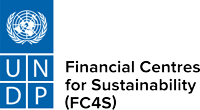Input to National Approaches – An analysis of Sustainable finance roadmaps: charting the path to financial system transformation
As governments around the world strive to combat the burgeoning threat posed by climate change, policy makers are engaged in a groundbreaking effort to realign their national financial systems to support the objectives of sustainable development. Having long viewed their institutional objectives as either ancillary to climate policy, policymakers increasingly recognize the financial system’s vital crosscutting role in promoting climate change mitigation and adaptation, as well as sustainable development more broadly.
To organize the different range of actors involved in the transition to sustainable finance around a common conception of their roles and responsibilities, national authorities have started to deploy strategic roadmaps. These documents generally provide recommendations to help prioritize actions and coordinate activities among policymakers, supervisors, regulators, associations, corporations, and other financial sector participants to accelerate the expansion of sustainable finance. Furthermore, these reports have served as important inputs to the development of actionable sustainable finance strategies, along with several other inputs and agreements, including those from international forums, networks, and organizations.
The document offers a detailed analysis of the structure and characteristics of 41 sustainable finance roadmaps created by 30 countries between 2014 and 2021, including an in-depth case studies section – covering Canada, Japan, Luxembourg, Mexico, Nigeria, Switzerland, Germany, and Ireland – to understand how their recommendations are being considered within national activities and strategies. Also, a Natural Language Processing (NLP) analysis was included to automatically identify their key topics.
This research was led by the UN-convened Financial Centers for Sustainability (FC4S) network, in collaboration with the World Bank, under the direction of the Principle 5 Workstream of the Coalition of Finance Ministers for Climate Action.
Key findings highlight the need for:
- A broad-based participatory process involving the institutions that will ultimately implement roadmap recommendations.
- The definition of clear implementation responsibilities, including monitoring arrangements and performance indicators (when possible), avoiding vague language and unrealistic objectives.
- The periodic assessment and publicly reporting of the state of sustainable finance and the changes underway, to help prevent backsliding.
Insights from the roadmaps content show that:
- Sustainable finance roadmaps should consider addressing data gaps through available digital tools, to increase data quality and enable market participants to incorporate sustainability more effectively into their decisions. Enhanced reporting and disclosure requirements were included in 93% of the roadmaps examined.
- The adoption of existing international standards or the development of new ones appeared in 66% of the documents.
- Most (71%) of the examined roadmaps recommended capacity-building programs about sustainable finance within the financial system and expanded education and training opportunities for finance professionals.










































